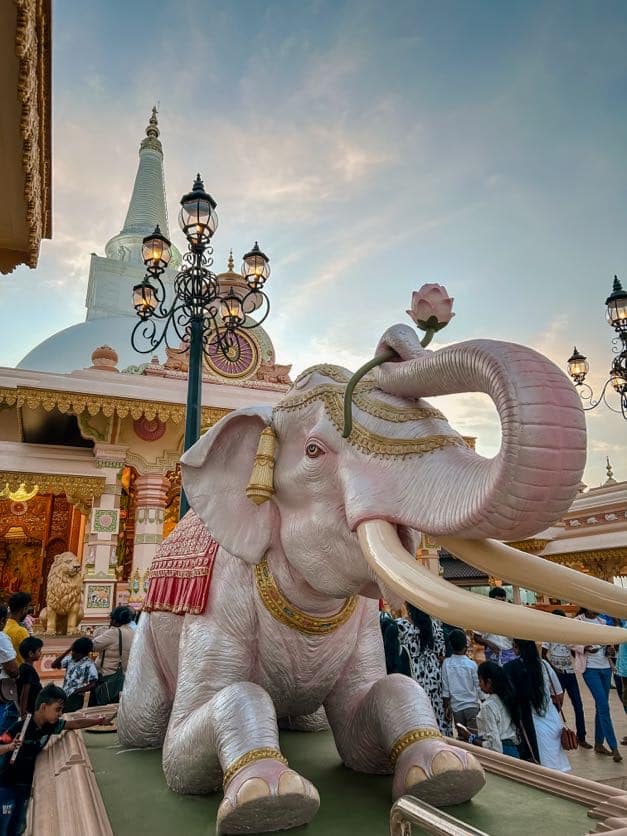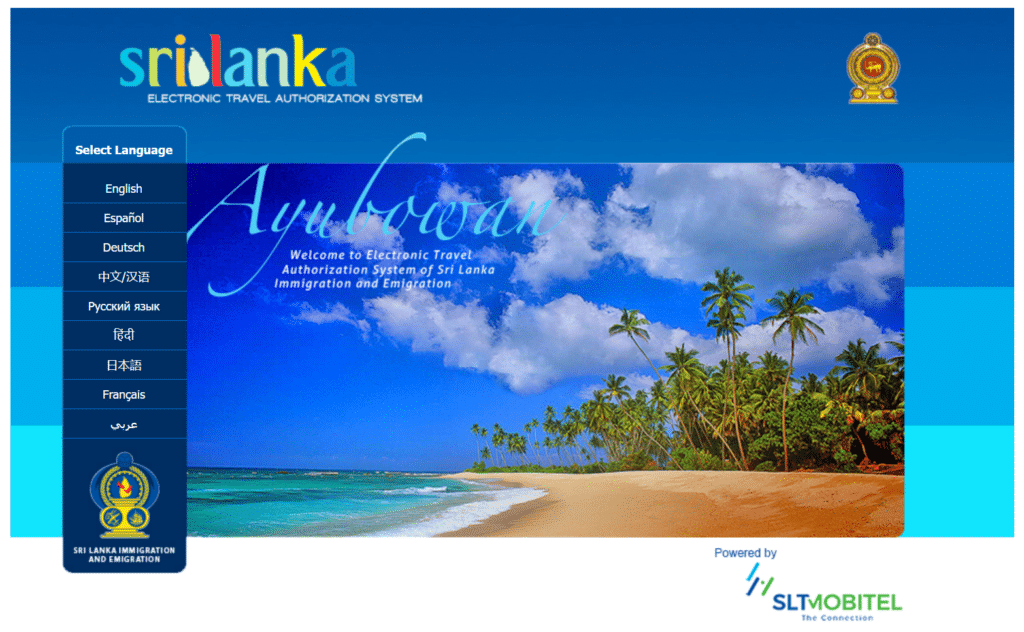Sri Lanka has faced many challenges in recent years. After a civil war and the pandemic, the country went through an economic crisis. Slowly but surely, Sri Lanka is getting back on track, making it a great travel destination once again. In fact, the country desperately needs tourism revenue now more than ever.
Are you planning a trip to Sri Lanka? In this article, you’ll find everything you need to consider when organizing your journey.
Find a packing list here!


All documents needed
For Sri Lanka, you’ll need not only a valid passport but also a visa. You can purchase this upon arrival, but it’s better to get it online before your departure. It’s cheaper (around $50 compared to approximately $60, with American Express being the most cost-effective payment option) and saves you from waiting in line at the airport.
You can apply for your visa through this website.
When you purchase your visa online, you’ll quickly receive an email with the confirmation and your visa number. At the bottom of this email, there’s a link to fill out an arrival form. It’s best to complete this a few hours before departure. This way, you won’t have to worry upon arrival—you’ll get your stamp at customs and can continue your journey without hassle.

source: Online Visa Application
What about money?
In Sri Lanka, the local currency is the Sri Lankan Rupee. One euro equals approximately 300 to 310 rupees. Most European banks won’t exchange your euros before departure, and if they do, it’s usually very expensive. It’s better to bring euros with you and exchange them upon arrival. There are several bank counters in the arrivals hall where you can exchange money. While the exchange rate here isn’t the best, it’s still a good idea to exchange some cash for your first few days.
Throughout the country, you’ll find exchange offices offering better rates. However, if you don’t have the time or energy to search for them, exchanging money at the airport is a hassle-free option.
Keep in mind that Sri Lanka is an affordable country! A full meal rarely costs more than €10, except in a few trendy tourist restaurants. Taking a bus, train, or tuk-tuk will only set you back a few euros. If you plan on shopping for souvenirs, many stores in places like Ella or Galle accept credit cards (Visa, Mastercard, and Amex). Most supermarkets also allow card payments, making it easy to avoid carrying too much cash.
Health
Always consult your doctor if you have any health-related questions or concerns about vaccinations before traveling. Sri Lanka is malaria-free, but mosquito-borne diseases such as dengue are still present, so protecting yourself from mosquito bites remains essential.
It’s also important to bring a basic first aid kit. If you experience serious injuries or illness, seek medical assistance from a local doctor or contact the Belgian embassy for further support. For any long-distance trip, having a good travel insurance policy is highly recommended!
Stay connected
Since so many things can be booked online in Sri Lanka—from train tickets to Uber rides—it’s very useful to stay connected. Your mobile provider will likely offer an international roaming package, but these are usually expensive and provide very little data.
There are two better options:
- Buying a local SIM card upon arrival at the airport. The SIM card is installed on your phone, and you don’t have to worry about anything else.
- Using an eSIM, which you purchase before departure and activate via the airport WiFi upon arrival.
Personally, I always opt for an eSIM. It’s incredibly easy and saves a lot of hassle. In Sri Lanka, I used a Holafly eSIM, which gave me unlimited data for three weeks and kept me connected even in remote areas—definitely a great option!
Want to learn more about eSIMs? Read this article.
Electricity
You’ll need a universal travel adapter for Sri Lanka. Sometimes, you can get away with using the bottom slots of the socket while inserting a pen into the top slot to activate the power flow (the top slot doesn’t carry electricity but unlocks the other two!).
Power outages are common in Sri Lanka. Many hotels have generators to switch over to, but it’s still a good idea to bring a power bank to keep your devices charged.

Additional:
These are items we always take with us when we travel!





